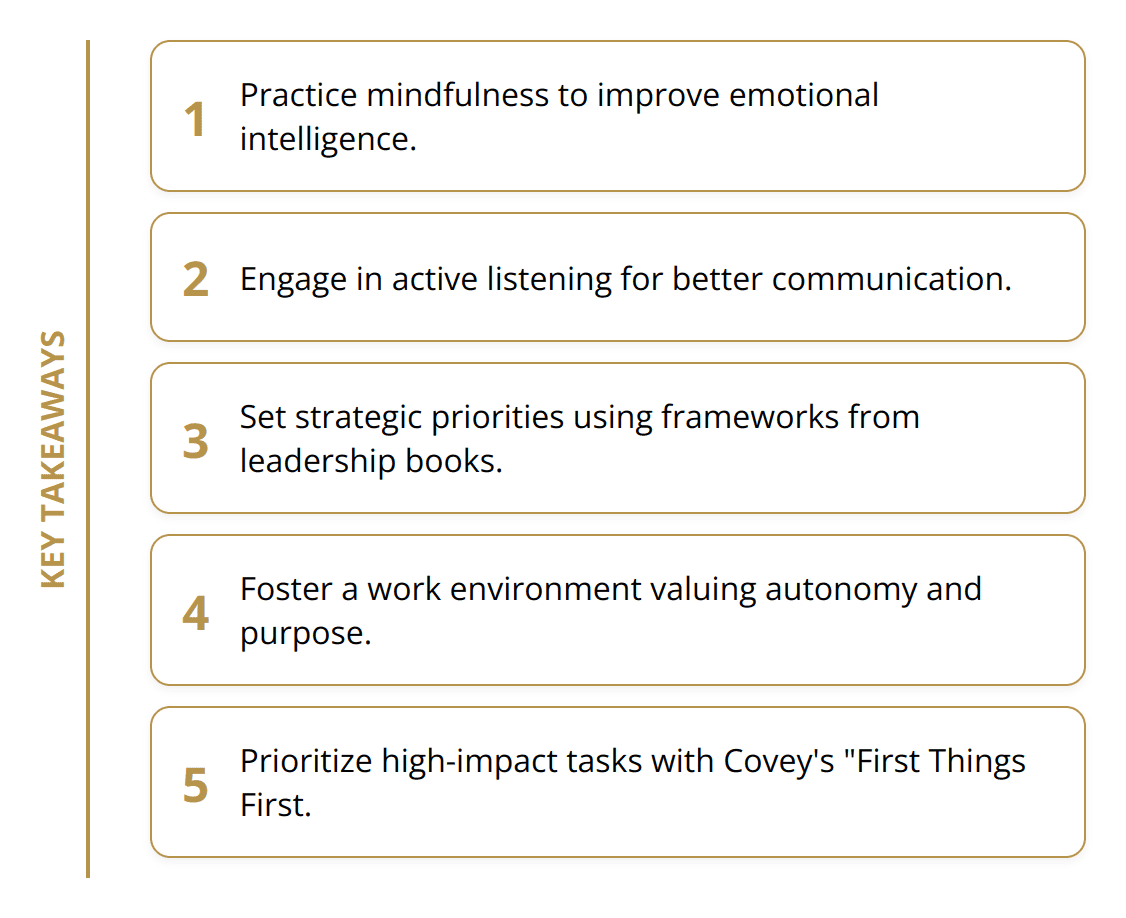Leadership books play a significant role in shaping both personal and professional lives. They enhance essential skills like self-awareness, communication, and strategic thinking.
Here at Beverly Hills Publishing, we delve into the profound impacts these books have on individual growth and organizational success. Join us as we explore the vital lessons and benefits derived from some of the most influential leadership books.
How Do Leadership Books Impact Personal Growth?
Leadership books profoundly influence personal development by enhancing self-awareness, sharpening communication skills, and bolstering decision-making.
Self-awareness and emotional intelligence are fundamental for personal growth. Leadership books like Emotional Intelligence by Daniel Goleman educate readers on recognizing and managing their emotions. This awareness enables better relationships and improved workplace performance. Research shows that high emotional intelligence correlates with better leadership abilities and higher job satisfaction.

Effective communication is another critical area. Books such as Crucial Conversations by Patterson, Grenny, McMillan, and Switzler offer practical frameworks for navigating difficult discussions. Effective communication avoids misunderstandings and fosters stronger team dynamics. According to a study by McKinsey, companies with robust communication practices are 3.5 times more likely to outperform their peers.
Decision-making improves substantially through insights gained from leadership books. The book Thinking, Fast and Slow by Daniel Kahneman provides valuable lessons on cognitive biases affecting decisions. Enhanced decision-making skills can lead to more effective strategies and better outcomes for leaders. Stanford University research indicates that effective decision-making is a crucial trait among successful leaders.
Consider these practices to leverage the impact of leadership books on personal growth:
-
Regularly practice mindfulness to improve emotional intelligence.
-
Engage in active listening to enhance communication.
-
Apply decision-making frameworks from leadership books in real-life scenarios.
Leadership books provide actionable strategies and practical advice that can transform personal development, boosting skills that are invaluable both personally and professionally.

Explore additional insights in our personal branding guide.
How Do Leadership Books Impact Professional Growth?
Leadership books play a pivotal role in professional growth by enabling strategic thinking, improving team management, and fostering innovation.
Developing strategic thinking is essential for any leader. Books like Good Strategy Bad Strategy by Richard Rumelt highlight the importance of clear objectives and coherent actions. This book underscores the need to identify challenges and devise systematic approaches to address them. Research from the Harvard Business Review points out that 70% of managers’ time should be spent on setting strategic priorities. Applying these strategies can transform an organization’s trajectory.

Improving team management and motivation is another significant benefit. Books like Drive by Daniel Pink emphasize intrinsic motivation, which is powered by autonomy, mastery, and purpose. Companies embracing this approach often see increased employee engagement and retention. For instance, Gallup reports that organizations with highly engaged employees have 21% greater profitability. Practical steps include setting clear goals and providing regular feedback.
Innovation and change management are also fostered through leadership literature. Innovation is the lifeblood of sustained success, and Change by John P. Kotter offers a roadmap for leading transformation. Kotter’s model, which includes steps like creating urgency and involving every level of the company, has been adopted by countless organizations. McKinsey research indicates that companies adept at managing change are more likely to succeed, outperforming competitors by 30% in their industry.
Consider these actionable tips to leverage the power of leadership books in professional growth:
-
Set strategic priorities based on frameworks from leading books.
-
Foster a work environment that values autonomy and purpose.
-
Implement proven change management techniques to stay ahead in your industry.
Explore additional strategies on how to collaborate effectively for more insights on team management.
Popular Leadership Books and Their Lessons
Stephen Covey’s The 7 Habits of Highly Effective People remains a staple in leadership literature. The book outlines actionable steps for personal and professional effectiveness. Covey emphasizes prioritizing tasks through his “First Things First” principle, which helps leaders focus on high-impact activities. This method reduces time spent on less important tasks, directly improving productivity. A study from the FranklinCovey Institute suggests that organizations implementing these habits witness a 50% increase in employee efficiency.

Simon Sinek’s Leaders Eat Last provides a deep dive into creating environments where employees feel safe and valued. Sinek’s concept of the “circle of safety” proposes that leaders should build trust and collaboration within their teams. This approach reduces workplace stress and fosters a sense of belonging, essential for high employee retention. According to a Harvard Business School study, companies with high employee satisfaction outperform their peers by 2.3%. Integrating these principles can lead to lasting cultural shifts in any organization.
Brené Brown’s Dare to Lead focuses on the importance of vulnerability in leadership. Brown argues that embracing vulnerability fosters innovation and creativity in the workplace. Her research shows that leaders who are open about their challenges create environments where employees feel more engaged and willing to take risks. This approach can significantly enhance team performance. A Forbes study indicates that teams with high engagement levels can achieve 21% higher profitability.
Consider these actionable insights from these renowned leadership books:
-
Prioritize tasks to focus on high-impact activities: Implementing “First Things First.”
-
Build trust within teams: Establish a “circle of safety” to enhance collaboration.
-
Embrace vulnerability: Encourage open communication to foster innovation.
To dig deeper into how these principles can be applied, explore writing for audience engagement for more practical tips.
Conclusion
Leadership books have a profound impact on both personal and professional growth. They enhance self-awareness, communication, and decision-making, which are vital for personal development. Professionally, they refine strategic thinking, improve team management, and foster innovation.

The long-lasting benefits of reading leadership books include enhanced productivity, better team dynamics, and increased profitability. By integrating these lessons, individuals and organizations can experience significant transformations.
Continuous learning through leadership literature is a powerful investment in your future. Books like “The 7 Habits of Highly Effective People,” “Leaders Eat Last,” and “Dare to Lead” provide actionable insights that can create lasting changes.
We at Beverly Hills Publishing help authors succeed by combining advanced publishing with strategic branding and marketing. Our integrated approach ensures authors are recognized as authorities in their fields. To explore more about our innovative methods, visit Beverly Hills Publishing.
Reading leadership books is not just about gaining knowledge; it’s about applying it to achieve tangible benefits. Commit to continuous learning and watch your personal and professional life thrive.















































































